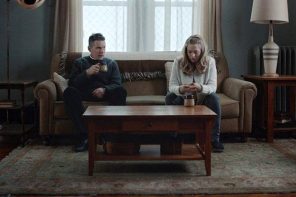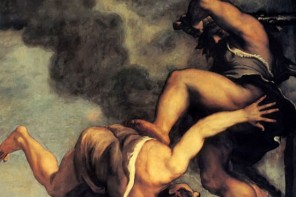Last week I argued in these pages that the Occupy movement might be diverted by its focus on getting physical outdoor space. I felt that the movement had gone viral—we were everywhere, and didn’t need a particular space any more. I was wrong.
We do need physical outdoor space. Trinity Church in Manhattan, sometimes meanly—and unfairly—referred to as a real estate corporation with an altar, could even give it. They own an empty downtown space at Sixth Avenue and Canal Street that is gated (providing security for occupiers) and accessible to public transportation so that allies, visitors, and media could join them. I really thought this demand was a sideshow until Thursday. Then I changed my mind.
That morning a dozen occupiers addressed forty or so clergy. We clergy were all somewhat skeptical of the demand for public space. You could hear the ministerial, rabbinical hrumph, hrumph in the room. (Most of us had never occupied Zucotti Park and a downward trend in temperature wasn’t going to improve on that.) But the occupiers edged toward the theological as they articulated a need for communal, inspirational, face-to-face contact in which they could “appear” to one another.
Secondly, they talked about the nearly complete privatization of municipal public space in a way that made a deep and tragic sense. Where can you go if you don’t own something? Does a public even exist if it has no space? The great irony is that they have been called the virtual demonstration, and here they were talking about old-fashioned, in-person, human interaction.
Third, they talked about the increasing surveillance of most space, private or public—the self-surveillance on Facebook, the constant camera, and the ask-no-questions “security” cordons. They reminded me of one of my first posts on this whole matter: we no longer march and the police pen us for “our own good.” What nonsense. A completely nonviolent movement does not need to be penned up for its own good.
And finally, they spoke of a new monasticism, in which people have given up everything to jump to a future they can only imagine. In the most recent newsletter posted by Occupy Theory [as of this posting, the site is down —Eds.], occupiers describe how sad they were about their lives, both present and future, until they found each other. If you were worried about “young people today” before, you will be terrified after you read about the emptiness, the bought-and-soldness, the futility, the lack of any place to be or person to be.
Paul Mayer, a friend of the Berrigans, was in our meeting. He said, “Be sure to read Thomas Merton’s essay on Marxism and Monasticism. It will explain to you what they are saying about the need to separate in order to enter.”
The group also answered my concerns about how Liberty Square (the former Zuccotti Park) in its second month turned into a homeless shelter without blankets. We opened at my church for five nights after the eviction and then we closed. We couldn’t handle the human devastation and destitution we saw nor did we want to give an excuse to the movement to “hang on” in that form. The current very well thought out plan is to have a pledge on the way into a new encampment. “No booze, no drugs, no violence, a positive commitment to occupying space.” Also one tent—no private tents. The Trinity site would actually be perfect because it is already gated and can be secured. The “drainbows” (those who show up at the party and smoke other people’s dope) would no longer be what everybody wants to talk about. Plus, there is already evidence that chronically homeless people are finding great inspiration in the Occupy Kitchen and work.
In the end, the occupiers’ argument for physical space is that they bother people by being together. “We are driving the mayors crazy.” Ah. What a good thing for a movement to do.
The best example I can give of what they are saying is what Philip Glass did at the Lincoln Center on Thursday night with his opera, Satyagraha. He concluded the performance by joining the occupiers outside. He did have to get through extraordinary “security.” He started inside, with the swells who can afford opera, by saying “mike check.”
This morning at Liberty Square we had a small ceremony of thanksgiving. The quote from Martin Luther King’s Letter from a Birmingham Jail made more sense than it ever has. And it has always made great sense. Many clergy hide behind “the anesthetizing security of stained glass windows,” he said in 1963.
King was talking about space, even then.
I’ve been wrong before, will certainly be again. But I see no need for my congregation, or any congregation, to become a private dormitory space for occupiers. They need to be outside and together. What they want is “the right to see each other.” Radical.
Will all this community result in a just economy? How could it not? Governor Cuomo has called a special session of the New York state legislature to deal with the millionaire’s tax—something he would likely not have done if some people weren’t occupying physical space, in New York City and Albany and Los Angeles and Philadelphia.
This movement is both “everywhere” and “somewhere.”




